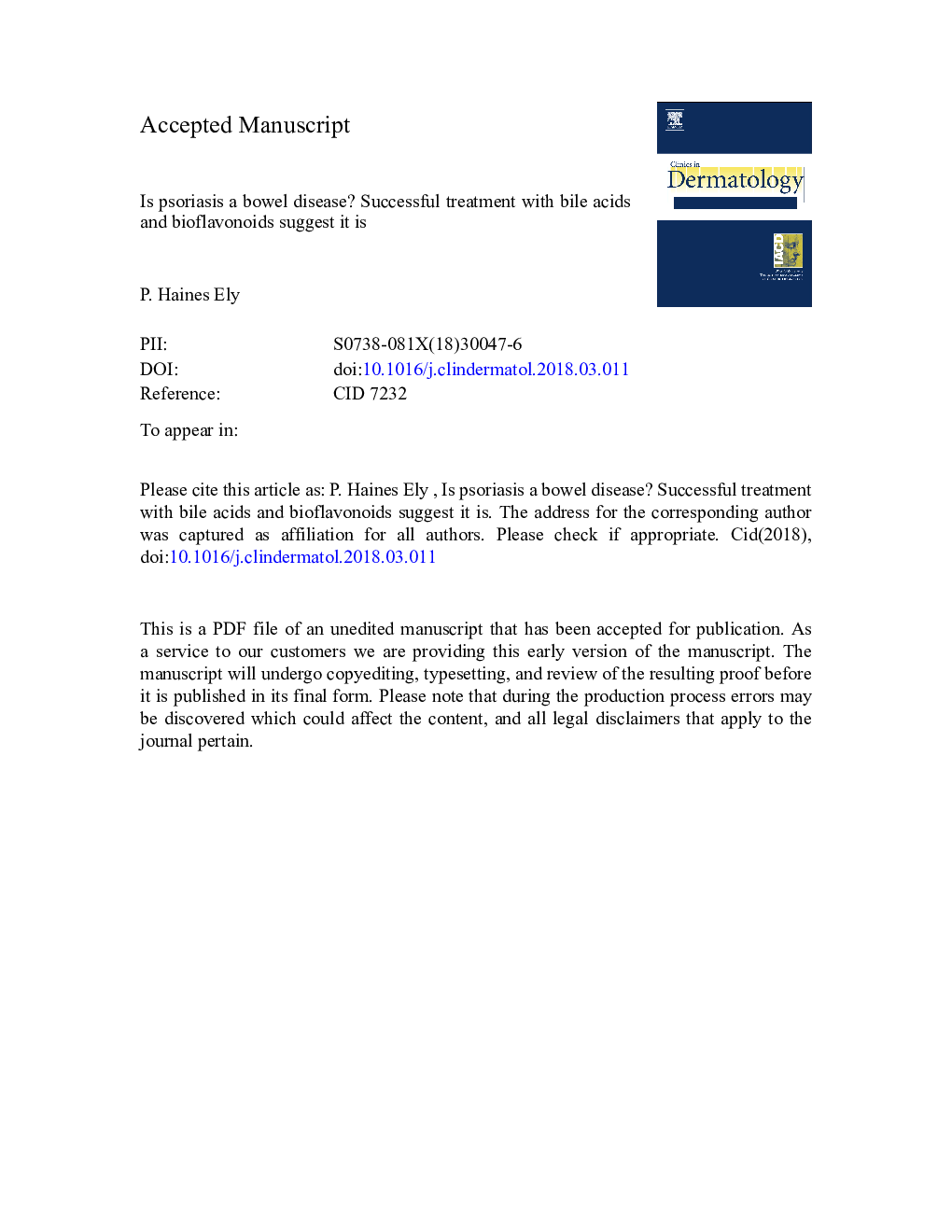| Article ID | Journal | Published Year | Pages | File Type |
|---|---|---|---|---|
| 8712325 | Clinics in Dermatology | 2018 | 32 Pages |
Abstract
The gut is the largest lymphoid organ in the body. The human microbiome is composed of trillions of bacteria. The DNA of these bacteria dwarfs the human genome. Diet and ethanol can cause rapid shifts in the number and types of bacteria in the gut. The psoriatic microbiome is similar to that seen in alcoholics; there is a decrease in bacterial diversity and overgrowth of bacteria in the small bowel. Psoriatics often have liver disease and deficiencies in bile acids. Psoriasis is a disease characterized by a leaky gut. All of the comorbidities of this disease are due to systemic endotoxemia. Bacterial peptidoglycans absorbed from the gut have direct toxic effects on the liver and skin. Their absorption, as well as endotoxin absorption, must be eliminated to treat psoriasis successfully. Endotoxin absorption is markedly increased by ethanol and peppers. Bioflavonoids, such as quercetin and citrus bioflavonoids, prevent this absorption. Bile acids, given orally, break up endotoxin in the intestinal lumen. Pathogens, including Helicobacter pylori and Streptococcus pyogenes, must be eliminated with antimicrobial therapy for any treatment to work. A complete protocol for curing psoriasis is provided.
Related Topics
Health Sciences
Medicine and Dentistry
Dermatology
Authors
P. Haines MD,
